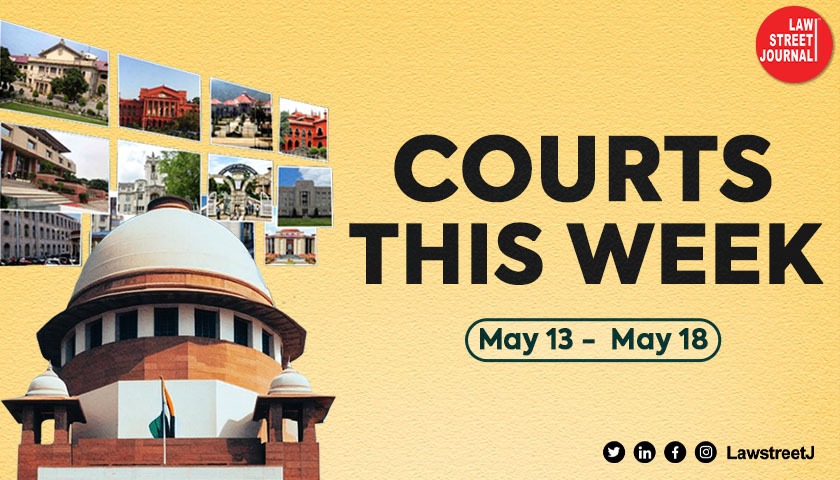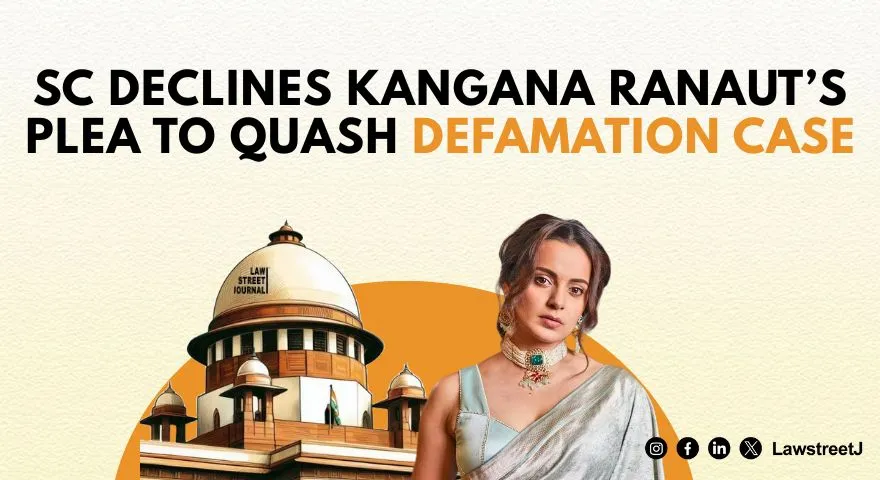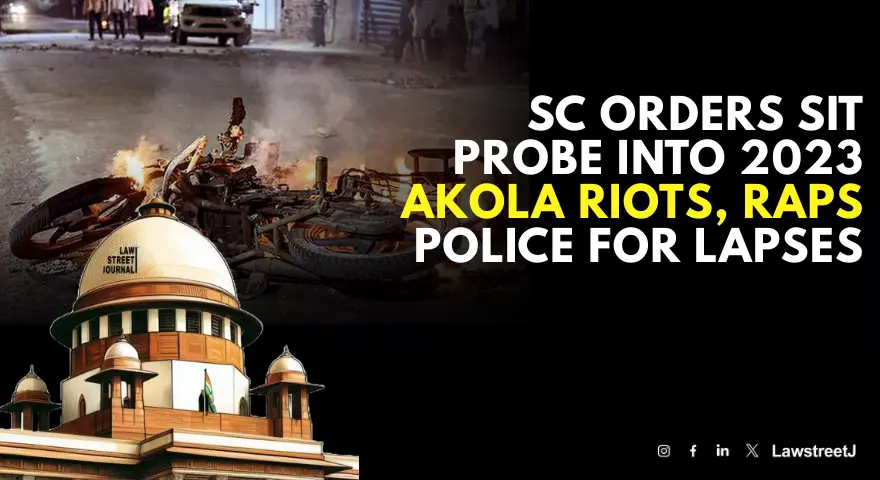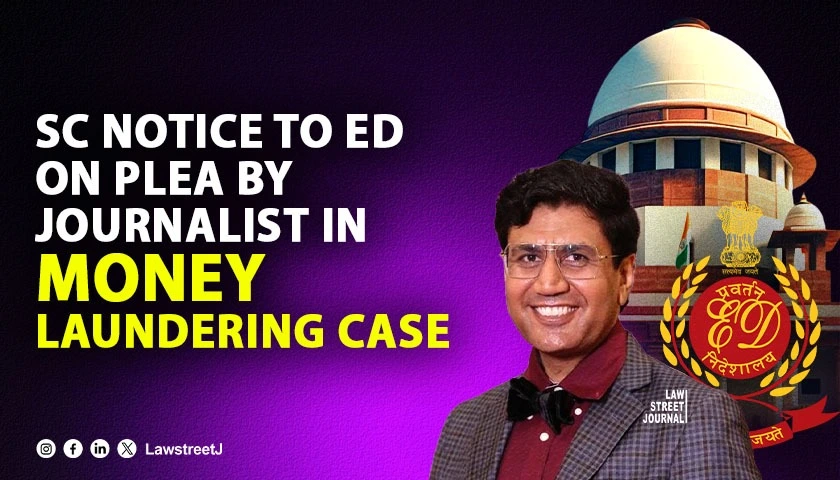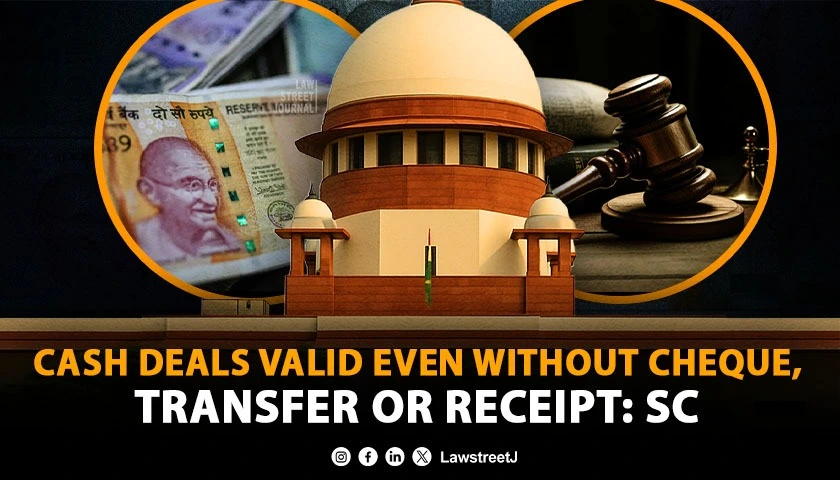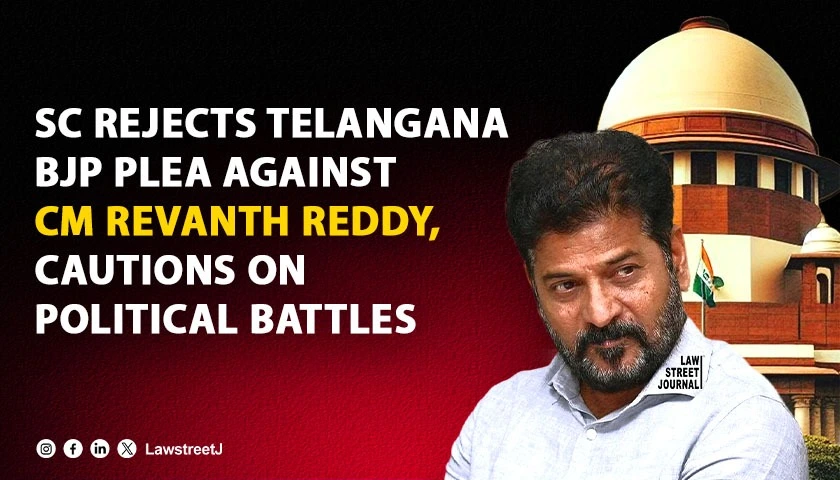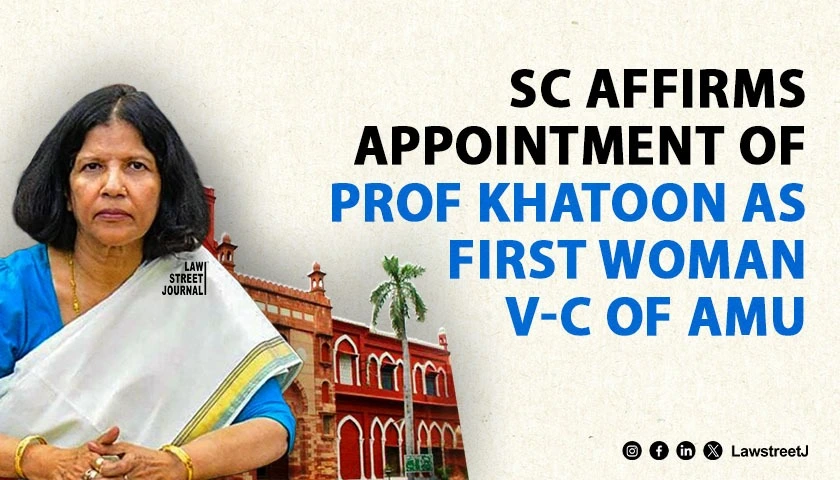NEW DELHI: A weekly round-up of the top stories from the Supreme Court of India and High Courts across the country summed up in a 3-minute read.
Supreme Court:
1 Advocates cant be held liable under Consumer Protection Act: SC
The Supreme Court declared that services rendered by lawyers to their clients do not fall under the Consumer Protection Act. A bench of Justices Bela M Trivedi and Pankaj Mithal held that advocates cannot be held liable for deficiency in services under the Consumer Protection Act, 1986, reenacted in 2019.
The top court said lawyers profession is sui generis, does not fall under Consumer Protection Act.
The bench also declared professionals cannot be treated at par with those carrying out business and trade.
2 Abuse under SC/ST Act has to be in public view to make out offence: SC
The Supreme Court has declared that an intentional insult or abuse coupled with the humiliation is to made in any place within public views in order to make an offence under the Schedule Caste and Scheduled Tribe (Prevention of Atrocities) Act.
A bench of Justices M M Sundresh and S V N Bhatti said the expression in any place within public view has an important role to play in deciding whether the allegation attracts the ingredients of an offence or not.
"An important test for in any place within public view is within the view of persons other than the complainant," the bench said.
3 ED can not arrest accused once courts take cognisance of complaint: SC
The Supreme Court has ruled that the Enforcement Directorate can't arrest a person after a court has taken cognizance of a complaint filed under Section 44 of the Prevention of Money Laundering Act and the central agency has to approach the court if it wanted to take custody of the accused.
A bench of Justices Abhay S Oka and Ujjal Bhuyan said, "After cognizance is taken of the offence punishable under Section 4 of the PMLA based on a complaint under Section 44 (1)(b), the ED and its officers are powerless to exercise power under Section 19 to arrest a person shown as an accused in the complaint."
If the ED wanted custody of the accused who appeared after service of summons for conducting further investigation of the same offence, the agency will have to seek custody of the accused by applying to the Special Court, which must pass an order on the application after recording brief reasons, the bench said.
4 SC issues notice to EC on plea by ADR for release of voters turnout data
The Supreme Court on Friday issued notice to the Election Commission to upload account of votes recorded of all polling stations 48 hours after close of polling of each phase in the ongoing 2024 Lok Sabha elections.
A bench of Chief Justice of India D Y Chandrachud and Justices J B Pardiwala and Sanjiv Khanna sought a response within a week from the EC on the application filed by NGO Association for Democratic Reforms.
The court scheduled the matter for hearing on May 24 during the summer vacations.
During the hearing, the bench asked senior advocate Maninder Singh and Amit Sharma, representing the EC as to what was the reservation in not disclosing the form 17C data, saying the poll body must disclose the data.
The counsel replied that there is no difficulty in that but the entire process, which includes the compilation of "form 17 C," takes time.
5 Fundamental right to health includes consumers' right to be made aware of quality of products: SC
The Supreme Court has said advertisers or advertising agencies and endorsers are equally responsible for issuing false and misleading advertisements as the fundamental right to health encompassed consumers' right to be made aware of the quality of products offered for sale by manufacturers, service providers, advertisers, and advertising agencies.
A bench of Justices Hima Kohli and Ahsanuddin Amanullah, however, found there is absence of any robust mechanism enacted in law to ensure that the obligations cast on the advertiser to adhere to stipulations in the Guidelines for Prevention of Misleading Advertisements and Endorsements of Misleading Advertisements, 2022, in letter and spirit.
It is deemed appropriate to invoke the powers vested in this court under Article 32 of the Constitution for the enforcement of the fundamental right to health that encompasses the right of a consumer to be made aware of the quality of products being offered for sale by manufacturers, service providers, advertisers and advertising agencies, the bench said.
6 Accused has fundamental, statutory right to be told grounds of arrest in writing: SC
The Supreme Court has held any person arrested for allegation of commission of offences under the provisions of Unlawful Activities Prevention Act or for that matter any other offence has a fundamental and a statutory right to be informed about the grounds of arrest in writing.
The top court said a copy of such written grounds of arrest have to be furnished to the arrested person as a matter of course and without exception at the earliest.
A bench of Justices B R Gavai and Sandeep Mehta broadened the scope of October 3, 2023 judgement in Pankaj Bansal case -- which made it mandatory for the Enforcement Directorate to disclose the grounds of arrest in writing to the accused in Prevention of Money Laundering Act -- to the anti terror law, the Unlawful Activities Prevention Act or any other offences in other penal provision.
7 Victim compensation under CrPC can't be ground to reduce sentence: SC
The Supreme Court has said payment of compensation to the victim in a criminal case stood on a completely different footing and it cannot be a ground to reduce the sentence of the accused.
A bench of Justices J B Pardiwala and Manoj Misra said the idea of victim compensation is based on the theory of victimology which recognises the harsh reality that victims are unfortunately the forgotten people in the criminal justice delivery system.
"Victims are the worst sufferers. Victims' family is ruined particularly in cases of death and grievous bodily injuries. This is apart from the factors like loss of reputation, humiliation, etc," the bench said.
High Courts:
1 Live-In Relationship is an imported philosophy contrary to the Indian tenets: Chhattisgarh HC
The Chhattisgarh High Court has recently held that the concept of a live-in relationship is an "imported" philosophy that goes against Indian tenets and is still viewed as a "stigma" in Indian culture. While rejecting the petition for a child born out of a live-in relationship, the court stated that live-in relationships are preferred over marriages because they offer a convenient escape when things don't work out between partners, unlike marriage, which is viewed as a social contract with legal obligations.
We are conscious of the fact that the live-in relationship, which is being followed in certain sects of society, still continues with a stigma in Indian culture. A live-in relationship is an imported philosophy contrary to the general expectations of Indian tenets. No trick would be available to hide the spot. In Indian tradition, each citizen possesses a sense of self that is unique and unlikely to be confused with imported traditions. There cannot be a more inglorious object than to adopt a live-in relationship to destroy the interwoven culture in society and tradition, the court said.
The Delhi High Court has refused Bollywood actor Jackie Shroff (@bindasbhidu on X) interim relief against Youtuber Mahesh Keshwala (@UnfilteredThugesh on YouTube) in his plea alleging personality rights infringement. The Court refused to accept Shroff's argument that Keshwala's video had tarnished his reputation by using the meme culture phrase Thug Life in it.
In his plea on personality rights' protection against various entities, the Delhi High Court took exception to Mahesh Keshwala's alleged infringing video against Shroff, stating that Shroff's allegation that the video tarnishes his reputation requires further scrutiny.
Importantly, the single judge bench of Justice Sanjeev Narula also expressed its first opinion on the usage of "Thug Life" in the video curated by Keshwala. It said that prima facie, the phrase is infact a compliment, and not derogatory.
3 Can't allow parole for having procreation with live-in partner: Delhi HC
The Delhi High Court, recently, denied the parole request of a married convict who wanted to establish a conjugal relationship with his live-in partner.
The court held that a woman whose legally wedded husband is still alive and with whom she already has three children cannot claim to have a fundamental right to have a child with her live-in partner, who is a convict. Further, it also held that granting parole in such circumstances would establish a problematic precedent, leading to numerous similar petitions.
4 Jammu and Kashmir HC grants bail to gang rape accused, emphasizes Presumption Of Innocence
The Jammu and Kashmir High Court has recently granted bail to two men accused of gang-raping their brother's wife.
The court, while granting bail to the accused, observed a clear tendency on the part of the prosecutrix to improvise and make fresh allegations involving her in-laws in the heinous offences in a bid to settle scores for her disturbed marital life. Further, the court noted that the manner in which the prosecutrix has improvised at every stage has brought the prosecution's case of gang rape against the petitioners into the realm of suspicion.
Equally important is a cardinal principle of criminal jurisprudence that an accused shall be presumed innocent till proven guilty, and this aspect is important to be borne in mind by the Court while considering the bail application filed by a person accused of an offence, it said while granting bail.
The Delhi Government has suggested to the Delhi High Court to allow the continued operation of two major dairies in Delhi, located near sanitary landfill sites, until 2025-26.
This development came after the Delhi High Court directed the government to consider relocating two of the capitals largest dairies - the Ghazipur and Bhalaswa dairies - to a new compound away from the landfill sites.
The Chief Secretary of the Delhi Government has submitted that the cattle in these dairies can be prevented from eating hazardous waste at the landfill sites until 2025-26, and therefore there is no need to relocate the dairies. However, the Court was not convinced by this submission.
6 Calcutta HC upholds constitutional validity of amendments to the Patents Act
The Calcutta High Court has recently upheld the constitutional validity of amended Section 53 of the Patents Act.
Section 53 of the Act deals with the term of a patent, specifying that the term shall be 20 years from the date of filing the patent application.
While upholding the vires of Section 53, the court held that a patent is not a fundamental right guaranteed by the Constitution of India but a statutory right conferred by legislation. Therefore, the Legislature, in its wisdom, can selectively confer certain rights at different points in time, at various stages of the patent granting process.

